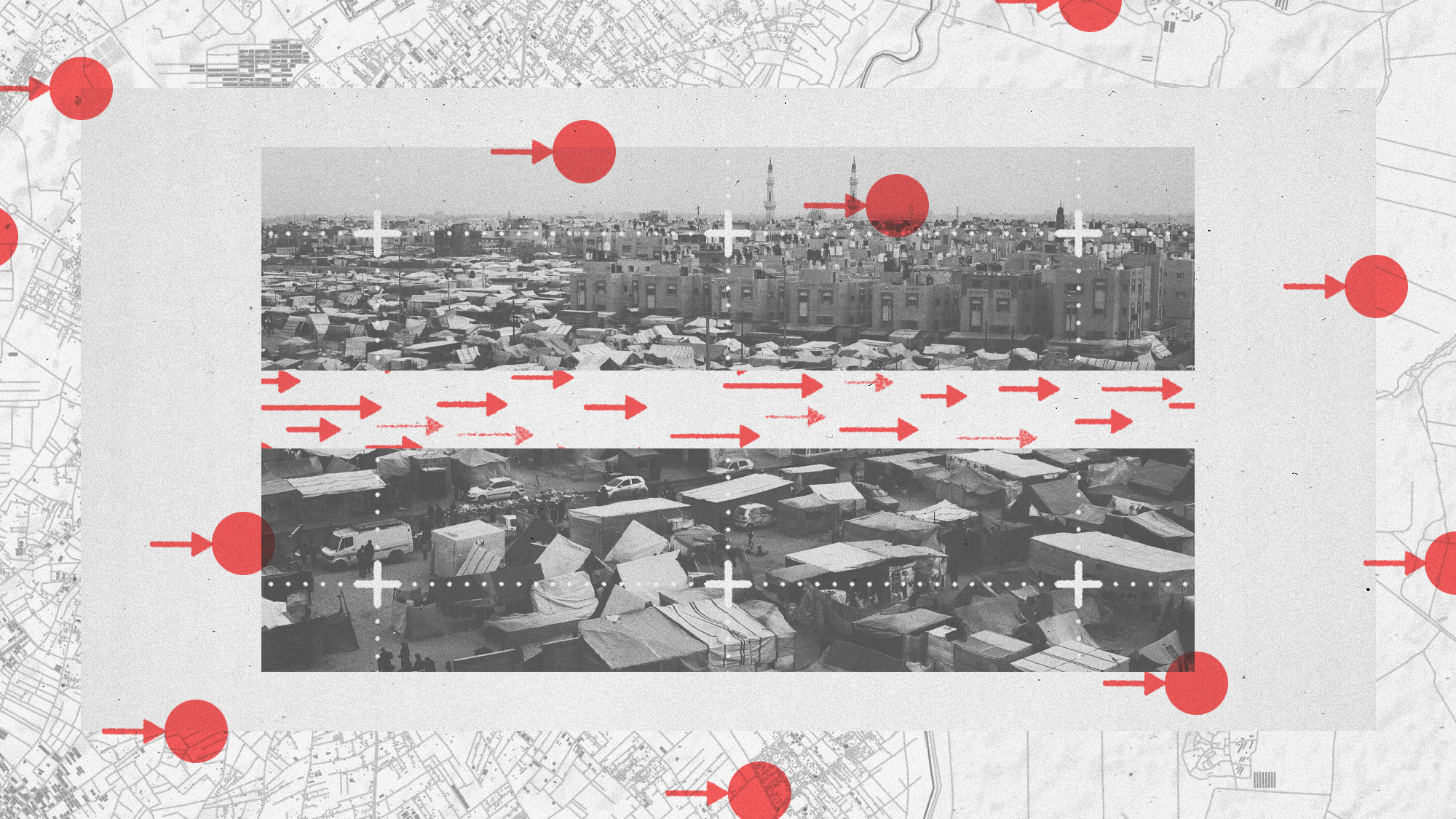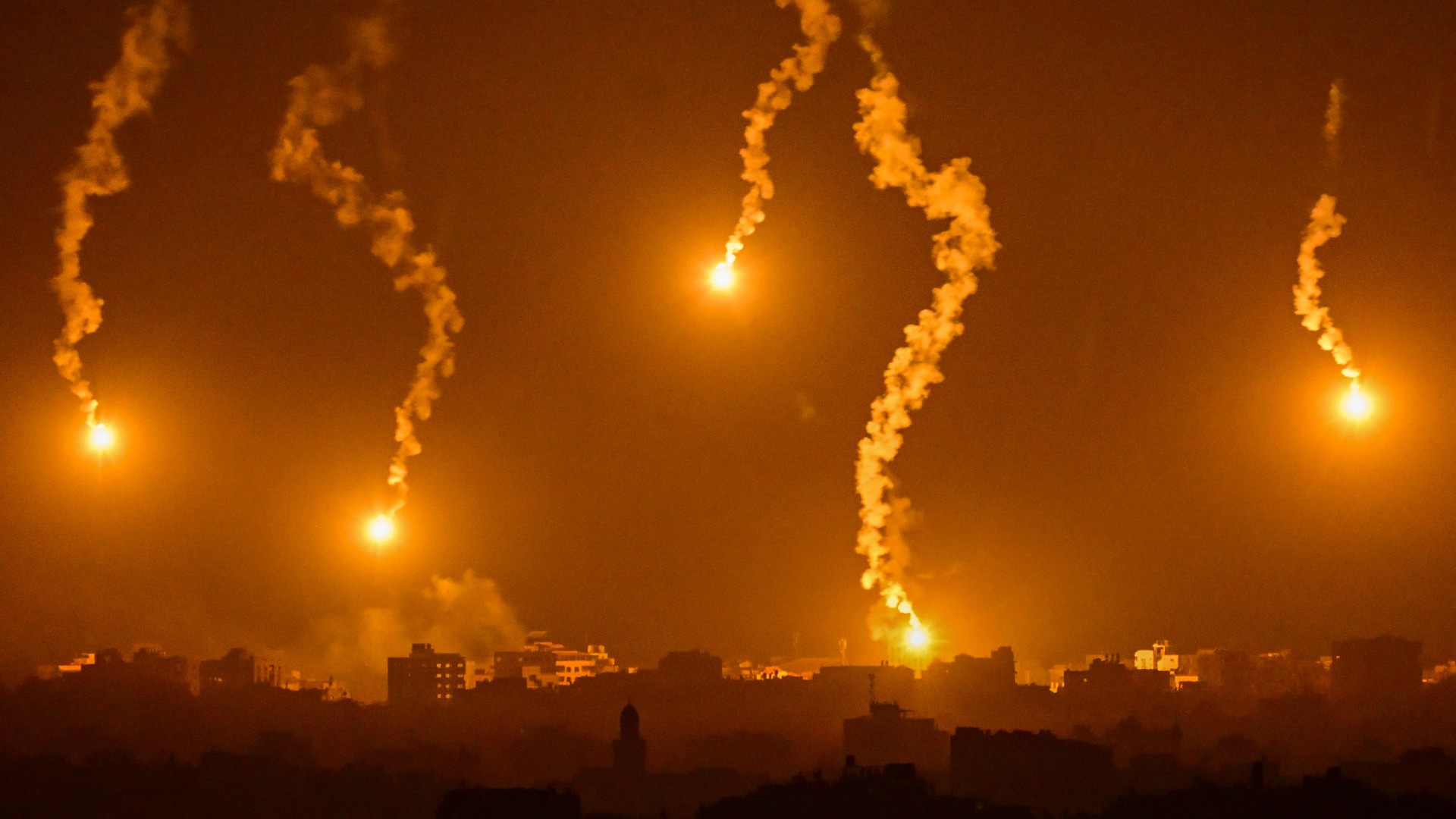The U.S. and Afghan women are skeptical of the Taliban's newly professed tolerance

A free daily email with the biggest news stories of the day – and the best features from TheWeek.com
You are now subscribed
Your newsletter sign-up was successful
The Taliban's longtime spokesman Zabihullah Mujahid, in his first-ever public appearance, told reporters in Kabul on Tuesday that the Taliban has declared an "amnesty" for officials of the U.S.-backed government it just toppled, "pardoned all those who have fought against us," and is "committed to the rights of women under the system of Islamic law," including working and attending school "within our frameworks." He also endorsed an "independent" media so long as journalists don't "work against national values," and assured the world that Afghanistan won't be used as a base to attack other countries this time around.
These assurances represent a very different Taliban than the brutal pariah regime that ran Afghanistan as a "draconian fundamentalist state" from 1996 to 2001, The Washington Post's Ishaan Tharoor explains.
The Taliban's more tolerant and moderate public face was met with skepticism at home and abroad. "This is not about trust, this is about verify," National Security Adviser Jake Sullivan said at a White House briefing Tuesday. "It's going to be up to the Taliban to show the rest of the world who they are and how they intend to proceed. The track record has not been good."
The Week
Escape your echo chamber. Get the facts behind the news, plus analysis from multiple perspectives.

Sign up for The Week's Free Newsletters
From our morning news briefing to a weekly Good News Newsletter, get the best of The Week delivered directly to your inbox.
From our morning news briefing to a weekly Good News Newsletter, get the best of The Week delivered directly to your inbox.
United Nations Secretary-General António Guterres warned of "chilling reports of severe restrictions on human rights" across Taliban-controlled Afghanistan. But the reports are mixed, with some Taliban commanders closing schools for girls and banning women from work and others reopening schools for both sexes and encouraging women to return to the office, The New York Times reports. "We are cautiously optimistic on moving forward," said UNICEF's Kabul operations chief Mustapha Ben Messaoud.
One female Afghan TV journalist broadcast live from Kabul Tuesday and interviewed a Taliban official, and women were among the reporters asking Mujahid questions Tuesday afternoon. But Afghan women are "are worried that they will be pushed back at least a century," Roya Rahmani, who became Afghanistan's first female envoy to Washington in 2018, told The Washington Post.
Hosna Jalil, a senior Interior Ministry official in the toppled government, warned the world not to trust the Taliban's new "reassuring messages" about women's rights. "Once Afghanistan becomes irrelevant and it's dropped from the headlines," as "it was before 2001," she told the Post, the Taliban "will start targeting every single individual who has been a vocal voice in the past or whoever has the intention to raise a voice on behalf of herself."
A free daily email with the biggest news stories of the day – and the best features from TheWeek.com
Peter has worked as a news and culture writer and editor at The Week since the site's launch in 2008. He covers politics, world affairs, religion and cultural currents. His journalism career began as a copy editor at a financial newswire and has included editorial positions at The New York Times Magazine, Facts on File, and Oregon State University.
-
 6 of the world’s most accessible destinations
6 of the world’s most accessible destinationsThe Week Recommends Experience all of Berlin, Singapore and Sydney
-
 How the FCC’s ‘equal time’ rule works
How the FCC’s ‘equal time’ rule worksIn the Spotlight The law is at the heart of the Colbert-CBS conflict
-
 What is the endgame in the DHS shutdown?
What is the endgame in the DHS shutdown?Today’s Big Question Democrats want to rein in ICE’s immigration crackdown
-
 Operation Rubific: the government's secret Afghan relocation scheme
Operation Rubific: the government's secret Afghan relocation schemeThe Explainer Massive data leak a 'national embarrassment' that has ended up costing taxpayer billions
-
 'Humanitarian islands': how will Israel's plan for Rafah civilians work?
'Humanitarian islands': how will Israel's plan for Rafah civilians work?Today's Big Question Designated zones in central Gaza to provide temporary housing, food and water for more than a million displaced Palestinians
-
 British warship repels 'largest Houthi attack to date' in the Red Sea
British warship repels 'largest Houthi attack to date' in the Red SeaSpeed read Western allies warn of military response to Iranian-backed Yemeni rebels if attacks on ships continue
-
 Houthi rebels claim Red Sea ship attacks
Houthi rebels claim Red Sea ship attacksspeed read Iran-backed Yemeni group vows to escalate aggression towards Israel-linked vessels in revenge for Gaza war
-
 Israel plans next phase of Gaza war as first hostages released
Israel plans next phase of Gaza war as first hostages releasedSpeed read After four-day ceasefire 'we will not stop' until destruction of Hamas, says Israel
-
 Israel says Gaza split in two in 'significant stage' of war against Hamas
Israel says Gaza split in two in 'significant stage' of war against HamasSpeed Read Troops expected to enter Gaza City within 48 hours as US secretary of state continues 'diplomatic shuttle'
-
 Mob storms Russian airport 'looking for Jews'
Mob storms Russian airport 'looking for Jews'Speed Read Plane from Israel surrounded by rioters chanting antisemitic slogans after landing in Russia's Dagestan region
-
 Tuberville's military promotions block is upending lives, combat readiness, 3 military branch chiefs say
Tuberville's military promotions block is upending lives, combat readiness, 3 military branch chiefs saySpeed Read
